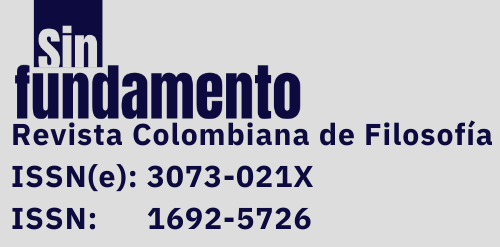Fantasía ideológica y creencia en Žižek
DOI:
https://doi.org/10.18041/1692-5726/sin_fundamento.30.2023.12415Palabras clave:
Ideología, Creencia, Marx, Žižek, Teoría CríticaResumen
La ideología, un concepto central en las ciencias sociales introducido por Marx, vincula el pensamiento con la actividad social. Aunque inicialmente se consolidó en el marxismo, fue cuestionada por la Escuela de Frankfurt en los años treinta debido a la distancia entre las expectativas de emancipación y la realidad. Slavoj Žižek, en "El Sublime Objeto de la Ideología", defiende la relevancia del concepto en la actualidad, sugiriendo una reinterpretación a través del psicoanálisis lacaniano. Propone que la ideología no es solo una "falsa conciencia", sino una ilusión que estructuralmente forma parte de la realidad. Žižek analiza el fetichismo de la mercancía, donde las relaciones sociales se convierten en relaciones entre cosas, y señala que, en el capitalismo, este fetichismo se desplaza hacia los objetos. En contraste, la crítica de Peter Sloterdijk argumenta que vivimos en una era "pos-ideológica", donde la ideología se torna cínica. Aceptando esto, Žižek sostiene que la ideología puede ser entendida como una ilusión que guía nuestras prácticas, sostenida por creencias que se imponen objetivamente. Esta reconceptualización plantea nuevos retos para la emancipación social, sugiriendo que nuestras creencias son fundamentales para nuestro conocimiento y acción social.
Descargas
Referencias
Marx, K. (2014). La ideología alemana. Ediciones Akal.
Žiźek, S. (2001). El sublime objeto de la ideología. Siglo veintiuno editores.
Žižek, S. (2003). Ideología: un mapa de la cuestión. Fondo de Cultura Económica.
Descargas
Publicado
Número
Sección
Licencia
Derechos de autor 2024 Sin Fundamento

Esta obra está bajo una licencia internacional Creative Commons Atribución-NoComercial-CompartirIgual 4.0.






